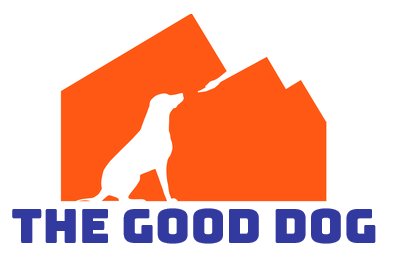 How frequently have we heard this statement? We're at the dog park and we see that cute little fellow with the mixed breed features. When asked, the owner inevitably turns and with their best pious expression, explains to you how the poor creature was saved from certain annihilation by the ravenous bugblatter beast of Traal. While I do not mean to make light of animal abuse or the importance of removing animals from harmful environments and rehabilitating them, we must consider the implications to the dog. For an animal as fluent in the forms of non-verbal communication as the dog. One can assume that it is not difficult to notice when it is made the object of people's pity. If you don't believe me go tell your dog he's a "poor baby" right now, and ask him whats hurting him. I'm sure that regardless of his present comfort his stomach will suddenly become painfully empty or his bladder painfully full. So what happens to a "rescue dog"? In a pleasantly high number of cases, the dog is taken home by somebody who is prepared to love it very much. Often, these kind and caring people are gratified by opportunity to show kindness to a creature that has been such a victim of neglect and abuse. While this is right and good, the effect can be negative if not balanced with solid rules and structure. If every time our dog needs to eat we respond, without requiring effort or contribution on his part, we weaken his or her sense of entitlement. In other words, it would be rather inappropriate for you to be angry that you failed to receive a birthday gift, yet, there are legal avenues in place, to aid individuals in prosecuting employers who fail to pay. This means that when you give your dog the gift of food, water or shelter he has no reason to feel that it is something he has control over or a right to. This weakens the animal's sense of security in your household and leads to behaviors such as separation anxiety ("oh no...they're gone...without my benefactor I will surely die! Bye bye door trim"), or behaviors like resource guarding or reckless eating (I don't know when I'll get food again! Quick posses it all!). On the other hand, if your dog is engaged in a social contract with you in which you each provide for the other what they cannot. Then your dog can sit in front of his bowl, or bring you a beer, or come and nudge your hand, and he can know that, because you each have defined responsibilities to each other, if he upholds his end of the bargain, you will as well. Your contract and responsibilities are completely up to you and your household to decide and define for yourselves. In my house the dogs sit in a specific place in the living room, away from the kitchen before feeding time, this means that if I forget to feed them and walk by to find them sitting in that place, I will be reminded and immediately uphold my end of the contract. This enables him to expect that in response to his measurable efforts, you will provide for him, which means that he can expect the necessities of life as due and just reward instead of a gift from a merciful god. About the merciful god; While it can feel oh so nice to be the gracious benefactor that has saved this pitiful, helpless creature from the jaws of doom itself, we must imagine what if feels like to be the pitiful, helpless creature. Your dog does not define himself as a broken creature, if asked he would say he is a dog, or that his name is "Fido", or that he likes to smell poo, not that he is a rescue dog. So that means that we, the handlers, actually have to do the harder thing. When we want to simply give, first we must ask for them to uphold their end of the contract (whatever it may be.) Not to demean them, but rather, to work towards the more subtle and distant goal of a deep and lasting sense of peace, belonging, and safety. In all we must believe that our not dog is not pathetic, but powerful, not rescued, but, a rescuer, the trainer must expect excellence from the dog and then patiently, gently, and positively guide and craft the dog into the best possible version of itself. |
PC for above picture -
The Journey Photography by Cris. AuthorEllis Gugel received a bachelors degree in Canine Studies from Bergin University of Canine Studies and applies a method that views the dog through a scientific light. It appeals to the higher cognitive functions that allow the dog to become more intelligent and intuitive than was previously thought possible. Archives
September 2024
Categories |
Web Hosting by iPage

 RSS Feed
RSS Feed

